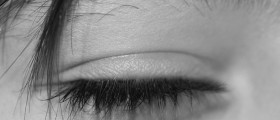
Nystagmus is a condition in which a person moves the eyes without control. In most cases, the eyes move quickly from one side to another and rarely the eyes move up and down. Nystagmus is usually accompanied with reduced vision and it is not a painful condition. Nystagmus can be developed in early childhood (congenital nystagmus) or in adult life (acquired nystagmus).
Nystagmus in children can be caused by many factors such as complications with the connection of the eye and the brain, glaucoma, cataract or problems with retina. Down's syndrome or the other disabilities can be followed by nystagmus. In a lot of cases, there are no other problems with health except nystagmus and if this condition begins in the first months of a child's it is hard to determine the exact cause. Sometimes nystagmus may be hereditary and to determine whether you will pass it on to the next generation, genetic tests must be performed.
Nystagmus in adults can be a consequence of a head injury or a symptom of multiple sclerosis or a stroke. It is important that you see a doctor when nystagmus appears.
Almost everybody who has nystagmus has reduced vision. The extent of vision reducement can be from mild to almost blind and it varies from one person to another. Persons who have been affected by nystagmus since they were little can get used to moving images because their brain accustoms to the eye movement. This condition does not imply the fact that the person with nystagmus will lose vision completely or that the condition will be worse in time, but nystagmus is a permanent condition. Vision can also be affected if the person is nervous or under the stress. A lot of people with nystagmus use magnifying glasses to read which can make the reading process more time-consuming than usual. People with nystagmus can also use a computer which is adjusted to fit their needs (font size, brightness and position of the screen). Perception of depth and balance can be affected so people with this condition can appear to be slower. Many people have a null point when the vision is better and the movement of the eye is reduced. It is difficult for a lot of people with nystagmus to move in busy places such as airports, crossroads or supermarkets. Usually people with this condition can not drive.
Nystagmus can not be cured but there are some helpful treatments, such as wearing glasses and contact lenses which can be of assistance for the person to focus better. In rare cases, a position of the eye muscle can be surgically adjusted but not even the surgery can cure nystagmus completely. People with nystagmus can go to regular schools and they should have the equal chances as people with full vision.
















Your thoughts on this
Loading...